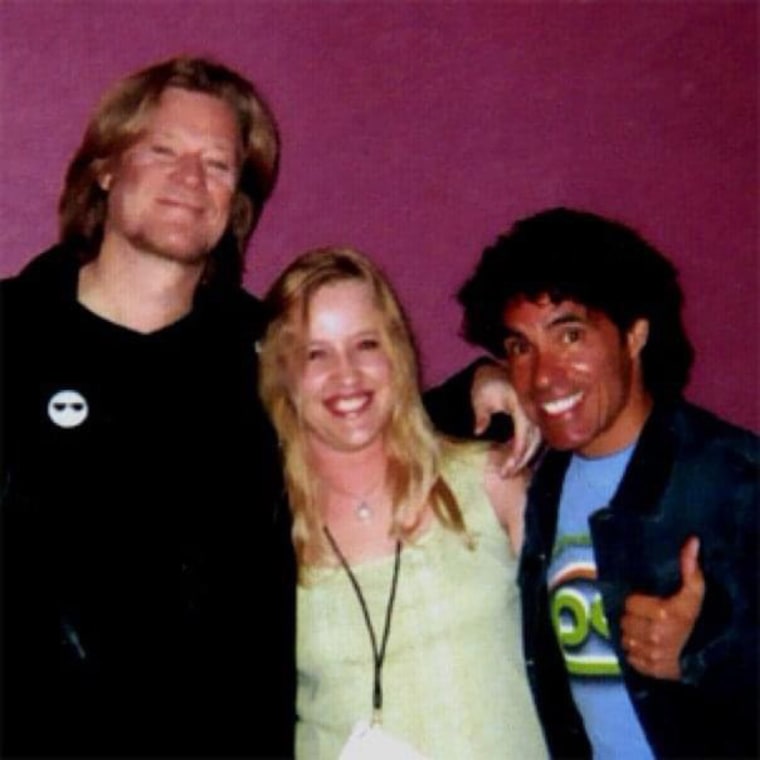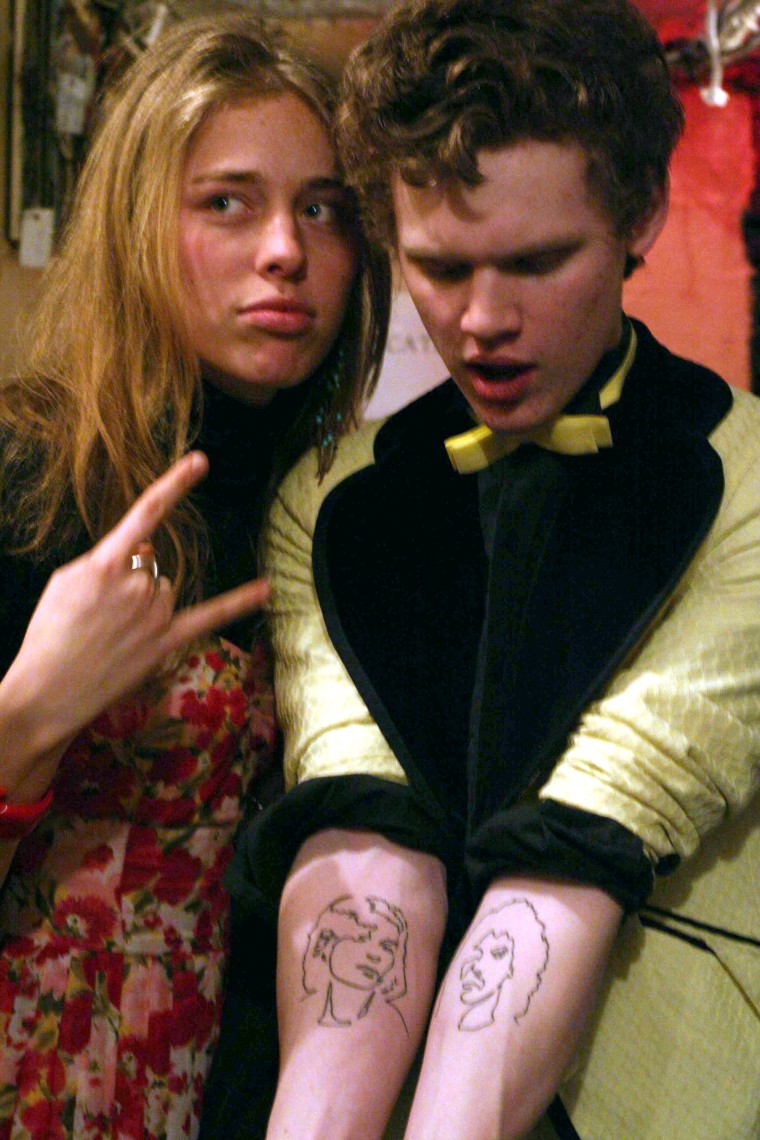The half-century musical collaboration of soul-pop duo Hall & Oates came to a record-scratching halt when it was revealed last month that Daryl Hall, 77, was suing John Oates, 75, in a Nashville court.
Court filings and a hearing last week shed some light on their legal spat, which revolves around the sale of their joint business venture, but the acrimonious language — including Hall accusing Oates of committing the “ultimate partnership betrayal” — has taken fans by surprise.
Now, many are wondering if this spells the end of the multiplatinum-selling duo, whose catalog of hits includes “You Make My Dreams,” “Maneater” and “Rich Girl.”
“Your average fans feel like it’s a divorce — they’re upset and sad,” said Lori Allred, who in 1987 founded the first Hall & Oates fan club in the U.S. that was officially recognized by the pair. “You’re seeing these two people, and you grow up with their music, following them and going to shows, and now it’s like, wow. We love both of them. We don’t want to take a side.”

While details of the business deal are under seal in chancery court, fans on social media aren’t sure what to make of the sudden fracture in their relationship.
Some are imploring the pair to move past any financial squabbles, while others believe they’re letting egos get in the way.
“Drop it Daryl,” one fan wrote on one Hall & Oates Facebook group.
But Allred, who came to know the men personally and later worked for their website on marketing and merchandising from 1996 to 2010, had found them to be nothing but “nice” and “good” to her and others.
“They both seem hurt by the other one, they seem hurt,” Allred said. “And it bothers me. I just wish them the best. I hope they can settle it and be happy.”
The two joined musical forces in Philadelphia in 1970, with Hall serving as the lead vocalist and Oates primarily on guitar.
They officially went by Daryl Hall and John Oates, which was condensed by the media to Hall & Oates as they racked up hits on the pop and R&B charts and collaborated on 18 studio albums. Their music videos were on regular rotation on MTV in the 1980s — featuring Hall, the towering blond lead singer, and Oates, with his bushy black mustache — while their songs later became staples in rom-coms, TV shows and commercials, introducing them to new generations of fans.
In 2014, they were inducted into the Rock & Roll Hall of Fame and continued to play together as recently as last year while maintaining solo careers.
Oates didn’t acknowledge any underlying difficulties during an interview with GQ in 2021.
“It’s actually a miracle, I’m actually shocked that we are able to still play together and it’s great,” he said. “It’s something that you have to really appreciate, because like you said, it’s not easy.”
But the cracks began to show last year.
In a March 2022 interview with the Los Angeles Times about his solo work, Hall said any plan for doing a new album with Oates was a pre-pandemic notion.
“Well, that’s inappropriate to this conversation,” he said. “But I have no idea. I don’t have any plans to work with John. I mean, whatever. Time will tell.”
Several months later, Hall said on Bill Maher’s podcast “Club Random” that he didn’t think of Oates as a creative partner.
“John and I are brothers, but we are not creative brothers,” Hall said. “We are business partners. We made records called Hall & Oates together, but we’ve always been very separate, and that’s a really important thing for me.”

The two embarked on separate tours this year. On Nov. 16, Hall filed his lawsuit and also asked for a temporary restraining order against Oates, which immediately set off queries over the nature of the litigation.
The cause of the friction became clearer last week when Hall said in a filing that he was concerned about the sale of Oates’ stake in their joint venture, Whole Oats Enterprises LLP, to Primary Wave IP Investment Management LLC. Such a sale, which includes trademarks, record royalty income and social media assets, would violate the terms of a business agreement, Hall contends.
“While falsely contending over the last several months that the Oates Trust wanted to maintain ownership in WOE, John Oates and the Co-Trustees engaged in the ultimate partnership betrayal,” Hall wrote. “They surreptitiously sought to sell half of the WOE assets without obtaining my written approval.”
A judge issued the temporary restraining order last month that momentarily blocked the sale, and Oates suggested in his own declaration that Hall has “over the years” tried to act as an individual “rather than as part of a duo or group.”
“I now must act with truthfulness and make decisions that are right for myself, my family, and my artistic future,” Oates said.
On Thursday, Hall won another court battle when a judge ruled to extend the pause on the sale until either an arbitrator weighs in or a Feb. 17 deadline.
Neither musician was in court, but their lawyers squared off about the public declarations.
“Maybe he wanted publicity, maybe he wanted to interfere with Mr. Oates’ business relationships,” Tim Warnock, Oates’ lawyer, said of Hall. “We won’t know the answer to that today. We will know the answer to that at some point, and there will be consequences about that.”
A lawyer for Hall denied it was done for publicity.
Theirs is only the latest musical success story to turn into a fraying partnership and possibly worse, particularly when money and ownership rights are called into question, said Glenn Gass, the provost professor emeritus at Indiana University’s Jacobs School of Music.
“Rock history is littered with the debris of people who got screwed,” Gass said.
Other famous duos with tumultuous relationships have included Paul Simon and Art Garfunkel, the Everly Brothers, and Liam and Noel Gallagher of Oasis, he said.
“It becomes both business and personal, and that’s a really deadly combination,” Gass added. “It sucks the joy out of the music.”
Sean Martin, who saw Hall & Oates live for the first time while attending the University of Vermont in the mid-2000s, said he hopes it doesn’t get to the point that the pair can no longer perform with each other.

“They were my musical inspiration and gods to me at a young age,” said Martin, a musician himself, who went as far as getting Hall’s face tattooed on his right arm and Oates’ face on his left arm.
“They’re not just a joke band with the guy with the mustache,” he said.
The ink even caught the real-life Hall & Oates’ attention when Martin said he saw them play in New York City and he flashed his arms, earning him an invitation to meet them after the show.
“I’ve never been regretful,” he said of the tattoos. “I’m so proud of them.”
Fans, Martin added, don’t want to see bad blood between Hall & Oates, and they should have the opportunity to work out their issues privately.
“What does it say about the world right now if these two Philly boys can’t get along?” he asked.











